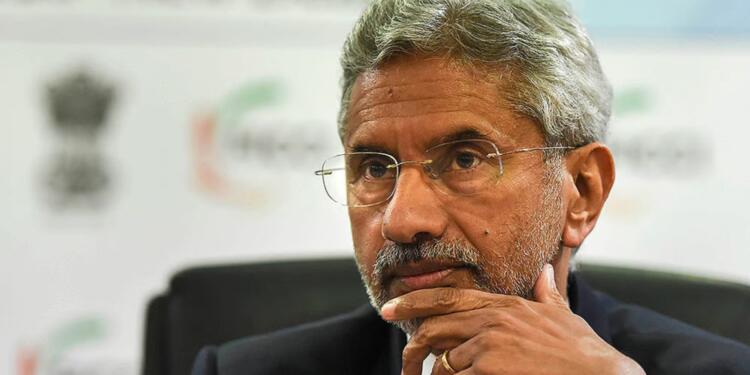India’s External Affairs Minister, S Jaishankar, recently denounced China’s disregard for long-standing agreements, attributing it to escalating border tensions. Speaking at the Raisina Roundtable in Tokyo, he highlighted the need to address shifting global dynamics, particularly in the Indo-Pacific region. Jaishankar also noted Russia’s evolving stance, suggesting a pivot towards Asia amid strained relations with the West. These remarks underscore India’s concerns over regional stability and its diplomatic response to emerging geopolitical challenges.
China’s Disregard for Agreements
India’s External Affairs Minister, S Jaishankar, has sharply criticized China for its failure to honor long-standing agreements, which has resulted in escalating tensions along the border. Jaishankar’s condemnation stems from incidents such as the Pangong Lake altercation and the Galwan Valley clash in 2020. Despite decades of relative peace, these confrontations marked a significant departure from the established norms of border management between the two countries. China’s disregard for these agreements has not only led to heightened military tensions but also raised serious questions about the stability of the region.
Implications for India-China Relations
The repercussions of China’s actions on bilateral relations between India and China are profound. India has consistently emphasized the need for peace and tranquility along the Line of Actual Control (LAC) as a prerequisite for improving ties with China. However, China’s aggressive posture and disregard for agreements have strained diplomatic relations between the two nations. India’s insistence on maintaining stability along the border underscores its commitment to peaceful coexistence, but it also highlights the challenges posed by China’s assertive behavior. The need for dialogue and diplomatic resolution remains crucial for defusing tensions and fostering constructive engagement between India and China.
Shifting Global Dynamics
Jaishankar’s remarks underscore the changing world order, particularly in the Indo-Pacific region, where significant power shifts are occurring. The rise of China and its assertive behavior, coupled with the evolving role of other major players like the United States and Russia, has led to increased strategic competition and uncertainty. The implications of these dynamics are far-reaching, affecting not only regional security but also global economic and political stability. Jaishankar’s emphasis on maintaining stability amidst these evolving dynamics highlights the need for proactive diplomacy and cooperation among nations to address common challenges and prevent conflict.
Also Read: Jaishankar’s Strong Stand Against Muizzu’s Bullying Claims
India’s Response and Adaptation
In response to the changing global scenario, India is recalibrating its diplomatic strategies to navigate emerging challenges and opportunities. Jaishankar’s recognition of India’s changing equilibrium reflects the country’s evolving role in the international arena, driven by its economic growth and geopolitical significance. India’s emphasis on peaceful coexistence underscores its commitment to fostering stability and cooperation in the region. As power dynamics shift, India is seeking to leverage its strategic partnerships and enhance its influence while promoting a rules-based order that safeguards its interests and promotes regional prosperity. Adapting to these changing dynamics requires flexibility, foresight, and proactive engagement to ensure India’s continued relevance and leadership in the evolving global landscape.
Russia’s Evolving Role
Jaishankar’s remarks on Russia highlight its shifting approach, notably towards Asia, amid strained relations with the West. Russia’s pivot towards Asia, driven partly by economic considerations and geopolitical alignments, holds significant implications for regional dynamics. Increased Russian engagement in Asia could potentially alter the balance of power, influence regional alliances, and reshape geopolitical strategies. Moreover, Russia’s presence in Asia may impact issues such as security cooperation, energy diplomacy, and regional integration efforts, presenting both opportunities and challenges for countries in the region.
In conclusion, Jaishankar’s comments underscore the complex interplay of factors shaping global geopolitics. India’s condemnation of China’s border actions, coupled with its anticipation of changing global dynamics, reflects the imperative for proactive diplomacy and strategic adaptation. Moreover, Jaishankar’s observations on Russia’s evolving role highlight the need for countries to navigate shifting alliances and power structures effectively. As geopolitical realities evolve, diplomatic recalibration and cooperation become essential for promoting peace, stability, and prosperity in a rapidly changing world.
Also Read: The Great AI Breach: Google, China, and the Stolen Secrets
























